Related info:
– Chemotherapy Doesn’t Work 97% Of The Time – 10 Questions To Ask Before Starting Cancer Treatments (Video)
On 5-FU (5-Fluoracil):
After knowing that, …
“Fluoride causes more human cancer, and causes it faster, than any other chemical.”
– Dean Burk, Chief Chemist Emeritus, US National Cancer Institute
…, why would anybody still want to undergo chemotherapy, when he/she understands now that the cancer drug 5-Fluoracil is all about fluoride?
Here is some historic background:
Dr. Louis Bullock, president of the Los Angeles branch of the American Cancer Society touted the new cancer drug 5-Fluoracil as “one of the most effective drugs used to treat and control cancer”, stating that they ‘safely’ gave cancer patients 150 to 500 mg of fluoride a day”, and that “it strengthened the bones”. [Yet, the 1965 Modern Drug Encyclopedia and Therapeutic Index Pharmaceuticals, Biologicals and Allergens contains a three-column listing of disasterous effects from 5-Fluoracil, one of them being “fatalities may be encountered occasionally in patients in relatively good condition”. In March 31, 1972, the Los Angeles Herald Examiner headlined a story “Scientist Hots Cancer Drug ‘Overkill’ “, which stated that 5-Fluoracil as a cancer treatment represents a case of classic overkill which does more harm than the cancer itself.” In other words, Bullock was either naive or he lied at the July 21, 1966 meeting ]. See 1969 LA Times.
Fluoride makes people docile, infertile and gives them cancer. It doesn’t cure cancer!
Fluoride is the active ingredient in Prozac.
More info (quotes and articles) on chemotherapy down below.
– Curcumin vs. Chemo for Colon Cancer:
So. There’s a new study comparing the effectiveness of curcumin to chemo drug 5-FU, on colorectal cancer cells.
Curcumin is the active ingredient in Turmeric, one of the top 4 anti-cancer spices that I consumed copious amounts of in 2004, and still consume copious amounts of today.
5-FU, perhaps the most ironically named of all chemo drugs (also known as “5 Feet Under”), is used to treat anal, breast, colorectal, esophageal, pancreatic, stomach and skin cancers (especially head and neck). It was patented in 1957 and is still one the most commonly used cancer drugs today. If that doesn’t send up a red flag about the progress of cancer treatment, your flag pole is broken.
Repeat. One of the most commonly used chemo drugs is almost 60 years old.
Communication between cancer cells and normal cells is a key factor in how cancer progresses. This “signaling” increases the survival, proliferation, and malignant behavior of tumor cells and their ability to resist chemotherapy drugs. In this study, researchers investigated the role of signaling between colon cancer cells and normal cells and how chemotherapy drugs and BCM-95 Curcumin affect that communication.
Additionally, the researchers examined the impact of the treatments on cancer stem cell markers. Cancer stem cells are responsible for developing resistance to chemotherapy and the recurrence of cancer after treatment.
The study used a 3D tumor culture, which more closely replicates how tumors act in the body than other conventional in vitro cell culture models. The culture was treated with either 5?Fluorouracil (5-FU), which is a common chemotherapeutic agent used for colorectal cancer, BCM-95 Curcumin, or a combination of 5-FU and BCM-95 Curcumin.
Surprise! 5-FU makes cancer stem cells more aggressive
One startling finding of this study was that treatment with 5-FU actually promoted the growth of cancer stem cells, which is the most plausible explanation for why colon cancer usually comes back.
According to Ajay Goel, Ph.D., one of the study’s authors,”Colorectal cancer is especially devastating because of its high recurrence rate. Cancer stem cells exist in very small numbers in a tumor and can hide from chemotherapy… They survive (treatment) and cause cancer to reoccur, sometimes years later. I believe cancer stem cells are the main reason why we can’t stop cancer.”
“Our recent studies on curcumin continue to reveal its unique potential as a therapeutic strategy in the fight against cancer,” continued Dr. Goel. “In this study, treatment with curcumin impeded cancer growth and proliferation by inhibiting signaling proteins and blocking tumor cell promotion. The beauty of curcumin is its ability to balance gene expression and positively influence anticancer pathways.”
Translation: Curcumin slows down and/or stops colon cancer growth and spread. It turns on cancer preventing genes and turns off cancer promoting genes. Friends, this is straight from a very influential and well respected cancer researcher. See his bio at the end of the post.
In the following graph from the study, the grey bars represent the number of cancer cells. The black bars represent the number of CD133 cancer stem cells. As you can see, 5-FU reduced the overall number of cancer cells ~5% more than curcumin, however curcumin dramatically reduced the number of CD133 cancer stem cells compared to 5-FU, which actually caused the cancer stem cells to increase, compared to the untreated cancer cells in the two control groups.
Friends, this graph perfectly demonstrates what is happening in the bodies of thousands of cancer patients. Chemo treatments will shrink the size of a tumor by 50% or more, and this is celebrated as a terrific progress. But meanwhile, the cancer stem cells (the real troublemakers) are multiplying. And soon after chemotherapy treatment is finished, more aggressive chemo-resistant tumors form in new parts of the body.
In this study, cancer growth was inhibited most when the curcumin was used as a pretreatment before chemotherapy. The addition of curcumin sensitized the cancer stem cells to chemotherapy treatment and reduced the amount of 5?FU needed to inhibit cancer cell growth, but as you can see in the graph, the reduction in cancer stem cells by 5-FU with curcumin was only slightly better (a few percentage points more) than curcumin alone.
And remember, 5-FU was also found to make cancer stem cells more aggressive, which means the remaining 5-FU treated cancer stem cells could become a much more serious problem down the road when compared to the Curcumin treated stem cells.
It is important to note that the form of curcumin used in the study, BCM-95 Curcumin, has unique specifications, including high absorption and inclusion of turmeric essential oil, which is not found in standard curcumin. Therefore, these specific results may not apply to other forms of curcumin.
If you want to supplement with BCM-95 Curcumin get it here.
The author of this study is Ajay Goel, Ph.D., Director of Epigenetics and Cancer Prevention at Baylor University Medical Center in Dallas, TX. He has spent more than 20 years researching cancer and has been the lead author or contributor to over 150 scientific articles published in peer reviewed international journals and several book chapters. He is currently researching the prevention of gastrointestinal cancers using integrative and alternative approaches, including botanical products. Two of the primary botanicals he is investigating are curcumin (from turmeric) and boswellia.
Dr. Goel is also a member of the American Association for Cancer Research and the American Gastroenterology Association and is on the international editorial boards of Gastroenterology, Clinical Cancer Research, PLoS One, Digestive Diseases and Sciences andWorld Journal of Gastrointestinal Oncology. He also performs peer-reviewing activities for almost 75 scientific journals, as well as serves on various grant funding committees of the National Institutes of Health. (He’s legit.)
Related info:
– Woman Rejects Chemotherapy, Heals Ovarian Cancer – Here’s How! (Video)
– US Scientists Find That Chemotherapy Boosts Cancer Growth
– Study: Chemotherapy Actually Increases Cancer Growth, Cancer Cells Becoming Resistant To Treatment
– Chemotherapy Backfires Causes Healthy Cells To Feed Growth Of Cancer Tumors
– Study: Chemotherapy Can Backfire And Boost Cancer Growth (AFP)
– Chemotherapy And Radiotherapy Make Cancer More Malignant (Video)
– New Documentary ‘Cut Poison Burn’ Exposes Cancer Industry’s Death Agenda (Official Trailer)

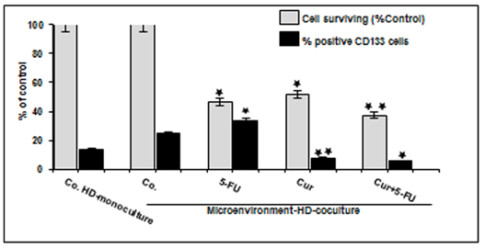

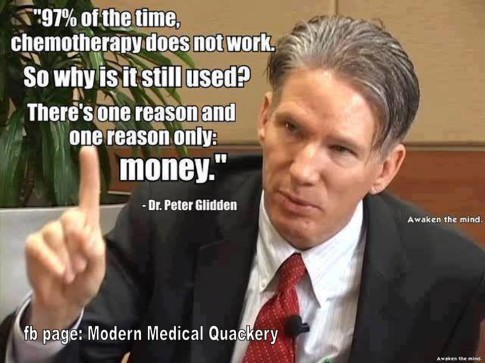
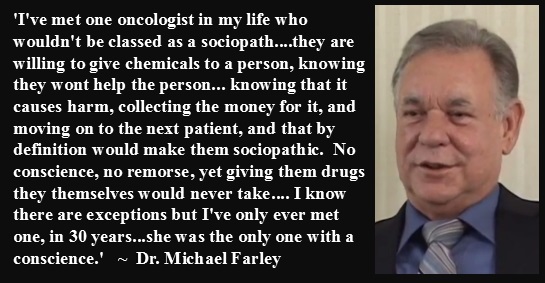
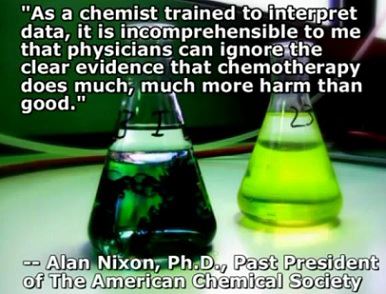
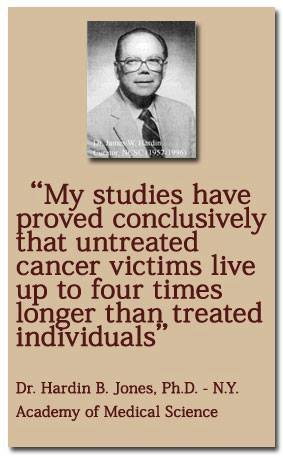

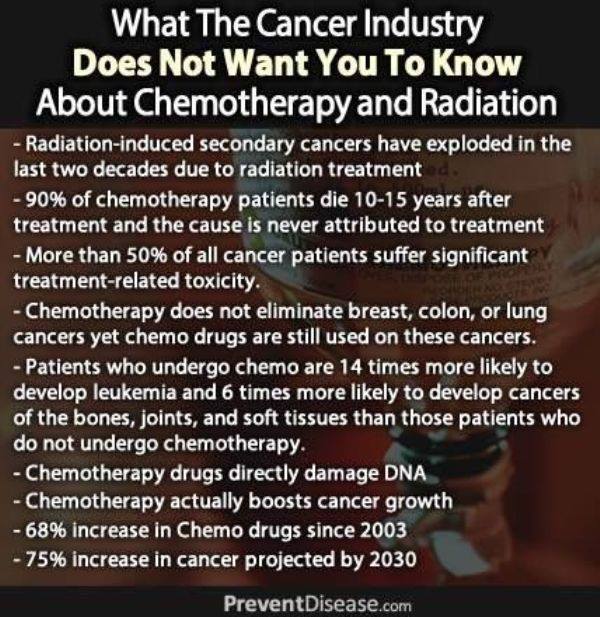
Very interesting.
http://articles.mercola.com/sites/articles/archive/2015/12/09/colonoscopy-pros-cons.aspx?e_cid=20151209Z2_DNL_art_1&utm_source=dnl&utm_medium=email&utm_content=art1&utm_campaign=20151209Z2&et_cid=DM92071&et_rid=1254174506